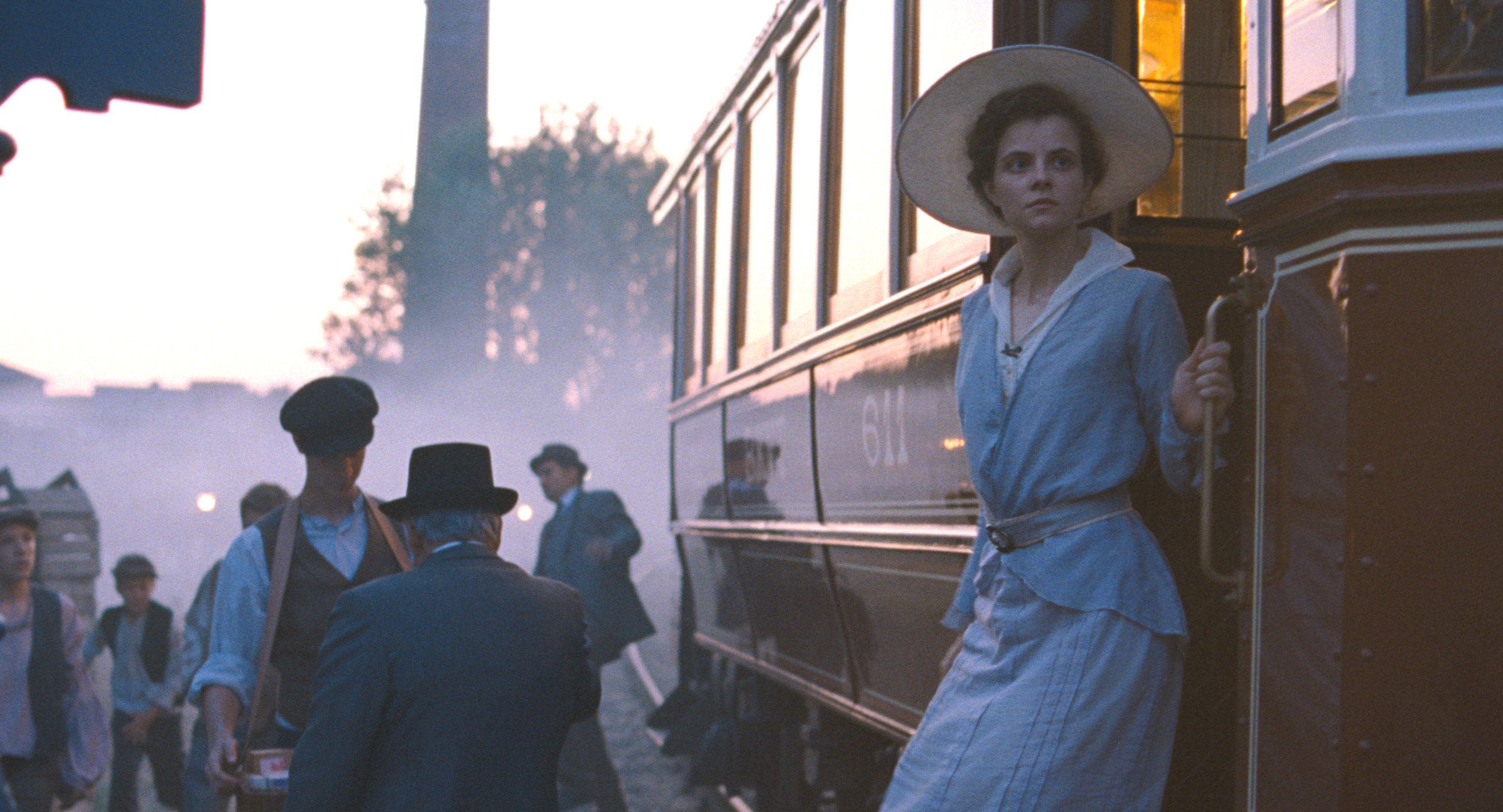Sunset: One woman's confoundingly ambiguous journey through a fraying, pre-WWI Central Europe
By Liam Lacey
Rating: B-minus
After the fall of the Soviet Union in 1991, there was a big revival of interest in the idea of “Central Europe,” and the old Austro-Hungarian Empire.
It was an era, as Robert Kaplan wrote, that conjured up “an intense, deliciously cluttered, and romantic European civilization, suggestive of cobblestone streets and gabled roofs, of rich wine, Viennese cafés, and classical music, of a gentle, humanist tradition infused with edgy and disturbing modernist art and thought.”
Irisz (Juli Jacab) arrives in Trieste in 1913 to become embroiled in arcane pre-WWI dark political doings
Apart from Wes Anderson’s dark and whimsical The Grand Budapest Hotel, though, we haven’t had a lot of films inspired by that era, which extends through the last third of the 19th century until the end of the First World War. Now we have the ambiguous and often-mystifying Sunset, the second film from Hungary’s László Nemes, whose audacious Oscar-winning debut, Son of Saul (2015), was set in the Auschitwz-Birkenau death camp. Using shallow focus and a square film frame, Nemes succeeded in suggesting more than showing, a vision of hell.
Sunset, we can presume, takes its title from the end of an era, though I find it hard to say exactly what else it’s about. Set in Budapest in 1913, it follows a young woman, Irisz Leiter (Juli Jakab), who arrives in the city from Trieste, hoping to be hired as a milliner at the famous hat store that her now-dead parents began. Irisz was orphaned at two, when her parents died in the same fire that destroyed their original store. And now she wants to join the establishment that bears her family name.
For some reason, the new owner, Oszkar Brill (Romanian actor Vlad Ivanov), quickly sends her away.
Shortly after, she learns of a brother named Kálmán, a man wanted for a murder and the secretive head of a revolutionary cell. Momentous events begin to unfold. Brill is planning a giant jubilee celebration for the Leiter hat store, which seems to occupy most of the town.
Meanwhile, Irisz finds herself living in a crummy bug-infested boarding house, also occupied by the young women who work at the millinery store. A strange man, a coach man thought to be insane, breaks into her room with a mysterious message. Soon, Irisz is on a journey to the heart of the strange malaise that afflicts the city. She is on a hunt for her brother, though strangers keep warning that blood will soon be spilled and she should go back where she came from. What can it all mean?
Visually, Sunset is fascinating. Mátyás Erdély’s camera work tracks through the grandly-recreated sets and the teeming city of carriages and cars, using the same shallow-focus techniques as Son of Saul. It keeps us on the edge of disorientation. But moment by moment, you find yourself realizing it’s as much a mess as a masterpiece, or perhaps a mess-terpiece.
Soon, Irisz learns that Kálmán was accused of murdering a Count Rédey five years before, and his widow (Julia Jakubowska), remains in full mourning. Irisz comes to visit the woman, and watches, in secret, as she is brutalized by a sadistic official from Vienna. At one point ,Iriz follows a group of men to a secret meeting – and later is on the verge of being gang-raped until one of their leaders, Sándor Jakab (Marcin Czarnik) intervenes.
At some point, I guessed, without knowing exactly why, that at some point in this dreamscape of a movie, Irisz would start dressing as a man. That happened. Somehow, I knew it would have some connection to the outbreak of the war which, sort of happens. And I knew the owner of the hat store was up to no good at all, which also proved true.
Somehow, within this roiling pot of fancy costumes, class hatred, vicious misogyny and official corruption, we are supposed to discern the poisonous seeds of the violence that would wrack Europe. The connections are somewhat fuzzy.
But those wide-brimmed parasol-sized hats? Well, they’re clearly symbols of the illusion of civility. “The horror of the world hides behind these infinitely pretty things” says someone. At least we got that much straight.
Sunset. Directed by László Nemes. Written by Lazlo Nemes, Clara Royer and Matthieu Taponier. Starring: Juli Jakab, Vlad Ivanov, Julia Jakubowska, At the TIFF Bell Lightbox

